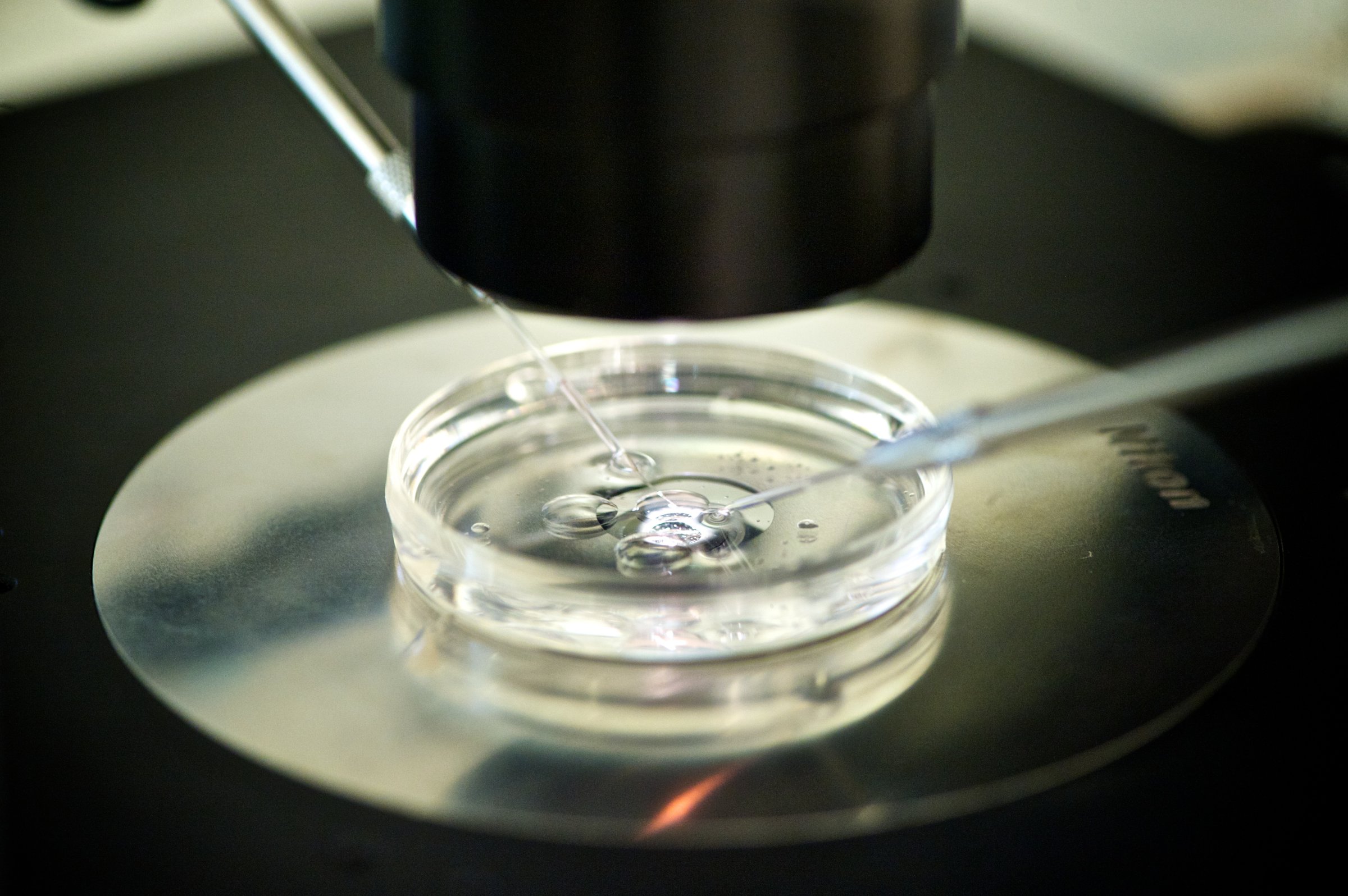
Parents attempting to start a family using donated or frozen eggs are often told that frozen eggs behave just like fresh ones, but a new study has found that in-vitro fertilization with frozen eggs has a significantly lower live birth rate.
According to a study published in the Journal of the American Medical Association, IVF cycles that use frozen eggs have a lower live birth rate than cycles done with fresh eggs. Researchers led by Dr. Vitaly A. Kushnir from the Center for Human Reproduction examined data from 11,148 egg donation cycles performed in 380 U.S. clinics in 2013, including 2,227 that used frozen eggs. For each IVF cycle, the live birth rates were 50% with fresh eggs, and 43% with frozen eggs. For each embryo transfer, 56% of embryos created with fresh eggs resulted in a live birth, compared to 47% of embryos created with frozen eggs.
Eggs are frozen using a quick-freeze vitrification process, a development which caused the American Society of Reproductive Medicine to lift the “experimental” label from egg-freezing in late 2012. Eggs can be frozen either to delay the mother’s own fertility, or to donate to another couple. But just because egg-freezing is no longer considered “experimental” doesn’t mean it’s a sure thing.
Read More: What You Really Need to Know About Freezing Your Eggs
Dr. Kushnir says the disparity in live birth rates could be partly explained by the fact that patients tend to start with a larger number of fresh eggs than frozen eggs, since donated frozen eggs are often packaged in smaller bundles. “If you start with 10 embryos rather than 5 embryos, you have a better chance of selecting the best embryo,” he says. “But it could also be that freezing and thawing diminishes the quality of the egg.”
He noted that while freezing eggs is no longer considered “experimental,” it’s still not a foolproof procedure, and emphasized that it tends to be easier to freeze embryos than eggs. “With an egg, its only one cell; it either makes it or it doesn’t,” he says.
This study did not adjust for age or other donor characteristics, which means it’s important to interpret with caution. But it’s the first widespread study that compares live birth rates from frozen eggs to live birth rates from fresh ones. Until now, doctors have relied on anecdotal evidence to reassure their patients that frozen eggs behave exactly like fresh ones, an idea that has contributed to the growing popularity of elective egg-freezing as a method of fertility preservation.
Another important thing to note is that this study measured frozen eggs from egg donors, who tend to be much younger than women who electively freeze eggs for fertility preservation. Egg donors tend to be between 18-25 (the cutoff age for Egg Donor America, one egg donation center, is 29) while women who freeze their own eggs tend to be in their mid-late 30s. Since most doctors think egg quality can decline with age, women who freeze their own eggs might see even lower live birth rates than the donor eggs in this study.
More Must-Reads from TIME
- Why Trump’s Message Worked on Latino Men
- What Trump’s Win Could Mean for Housing
- The 100 Must-Read Books of 2024
- Sleep Doctors Share the 1 Tip That’s Changed Their Lives
- Column: Let’s Bring Back Romance
- What It’s Like to Have Long COVID As a Kid
- FX’s Say Nothing Is the Must-Watch Political Thriller of 2024
- Merle Bombardieri Is Helping People Make the Baby Decision
Write to Charlotte Alter at charlotte.alter@time.com